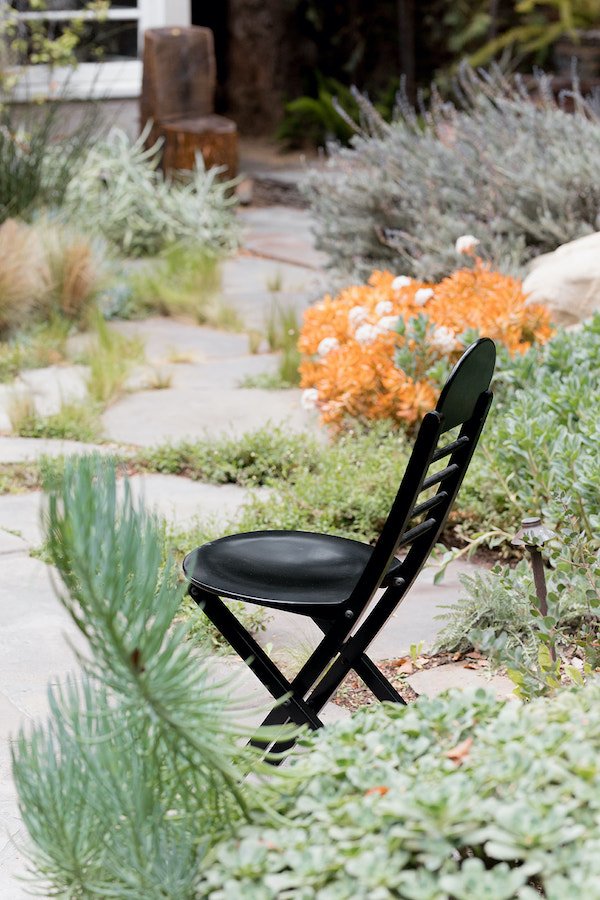
How I’m Mending My Codependent Relationship With My Mom
My Mom Was My Best Friend
If you’ve read my writing before, you know that I mention my mom a lot. I’m a self-declared mama’s girl and have been my whole life. My mom grew up in a small fishing town on the east coast, and her childhood was filled with alcoholism, crummy parenting, and divorce. My parents met when my mom was in eighth grade and my dad was a sophomore in high school; they got married as soon as my mom graduated college. My dad was the most stable thing in my mom’s life for a long time until, at the age of 24, she became a stay-at-home parent for my brother and me.
My mom was my world, because she took all the care and support she never received from her parents and poured it into us. She would let me cry hysterically even when nothing significant had happened. She would listen to me for hours, sitting in my room every night (sometimes taking turns with my dad) because of my extreme anxiety. This went on until middle school. She was—and is—a superhero.
“My mom was my best friend. I knew I always had her support, but our codependent relationship kept me from standing on my own.”
Unfortunately, over the years, we’ve realized how damaging the codependent nature of our relationship was to both of us. I knew that I could call my mom and she would run to my side. She was my best friend. It was such a blessing to know I always had her support, but it also kept me from standing on my own. The older I got, the more my mom confided in me, little by little. My mom and I spent a lot of time together, and soon the lines started to blur.
Finally, everything came to a head a few weeks before my 21st birthday when my parents announced they were getting a divorce. Everything I thought I knew, everything I thought I had to hold on to, was shattered. My mom’s heart and spirit were completely broken, making it impossible for her to hold anyone else’s feelings other than her own. I don’t blame her because it was hard enough for me to process. However, the years of tying my happiness to my parents, especially my mom, left me feeling like I didn’t have anywhere to turn. I’m still working through bitterness about this today.
Since then, my parents have reconciled, which is good and hard all at the same time. It’s been a process for the two of us to figure out how to rebuild our relationship without falling into old codependent patterns, and it probably always will be. We’re learning through honest communication what each other’s boundaries are and how to respect them.
If you’re feeling emotionally stuck in your relationship with your parent, there are ways to work through it. By identifying codependency, setting boundaries, and moving forward with healthier choices, you can change your relationship for the better.
Identifying A Codependent Relationship
[…] not surprisingly, codependents tend to choose partners and friends who unload their negative feelings and problems onto others and don’t take responsibility for their actions. – PsychCentral
ThriveTalk, an online therapy company, defines codependency as “a relationship in which the needs of two or more people are interconnected in an unhealthy way.” While children are initially dependent on their parents, as kids grow into adults, a natural and healthy separation is supposed to occur. Yet, sometimes things get “stunted,” as the Huffington Post put it. “They each get stuck in their old roles, and healthy boundaries become blurred or disintegrate.”
Through my research, I found many a listicle of signs to look out for codependent relationships, though I think it all boils down to depending on someone else for happiness. Psychotherapist Ellie Vargas explains in one of her blog posts that codependency is believing and behaving according to the feeling that “I’m not ok unless you’re ok,” or “I’m not ok unless you feel ok about me.” A codependent relationship between a child and a parent typically means that one or both absorbs and responds to the other person’s feelings. This is exactly what my mother did for years, taking on my sadness, happiness, depression, and anxiety. And the more the rose-colored glasses of my childhood slipped off, the more I also began to depend on her wellbeing for my own.
“This work is necessary and wildly valuable in order to stop the cycle of codependency.”
The thing about codependency is that it’s a toxic cycle. My grandmother and mother had a codependent relationship, which then, despite best efforts, led my mom and me to have a codependent relationship as well. My father and mother had, and are working on, a codependent relationship. And I’ve had exclusively codependent romantic relationships until my current boyfriend and I decided to work on healthier practices. This work is necessary and wildly valuable in order to stop the cycle of codependency.
The truth is that everyone’s relationships with their parents will look different. It’s important to keep in mind that there is still room for nuance in this space. Be gentle with yourself during the discovery process.
Building Conscious Boundaries
“While having a close relationship with your mother, in which you can openly talk to her about practically anything, can be normal and healthy, you may still want to hold some limits on what you choose to disclose.” – Clinical Psychologist Gina Delucca via the Huffington Post
After successfully identifying your relationship as a codependent one, it’s vital to take a step back. Marriage and Family Therapist Darlene Lancer suggests emotionally detaching from the other person. “It means not reacting, not taking things personally, nor feeling responsible for someone else’s feelings, wants, and needs.”
“I can choose to share my life with my mother, as opposed to needing her for my happiness.”
This is such a hard and emotional step in the process, but physical space must be taken from your codependent counterpart in order to move forward. Take this time to reflect on how you’ve been, and how you want to be. For me, I’ve realized that I relied on my mom to reassure me about everything, looking to her for confirmation that what I was doing was okay. Nowadays, I’m working on trusting myself more and honoring my choices, even when not everyone agrees with them. Acknowledging and wrestling with my insecurity is tough, yet incredibly helpful, in the process of becoming a confident woman. Through this, I can choose to share my life with my mother, as opposed to needing her for my happiness.
Focusing on your own role within the relationship is necessary to create healthy boundaries between you and your parent. Licensed Clinical Social Worker Sharon Martin believes that making a list of “what you’re responsible for and what you can control,” is a helpful way to set boundaries. She writes that codependent relationships are consumed by worrying about the other person’s feelings and actions, which you cannot control. By taking time for yourself to reflect on the role you want to play in your relationship—not what you wish your parent would do—, you will begin building a foundation for a healthier future.
The rules don’t need to be hard and fast, and they will most likely change as your relationship with your parent does. However, they are an important place to start. I am lucky because my mother is also interested in setting boundaries in our relationship, and we’ve decided together what will work best for us. So far, our best bet is being completely honest and matter-of-fact when we’ve reached an emotional limit. In other instances, rules may have to be presented to a not-so-accommodating audience, and that’s when you have to remember detachment. Remember your parent’s happiness does not bear any reflection on your character. Remember your parent does not have to be fixed. And remember, what you think of yourself is what truly matters.
Moving Forward In A Healthy Way
Try behaving in a way that’s different from the role you played growing up. Pay attention to the habits and defenses you use to manage anxiety. Ask yourself, “What am I afraid of?” Remember that although you may feel like a child with your parents, you aren’t one. You’re now a powerful adult. You can leave unlike when you were a child. – Darlene Lancer, MFT
Navigating a codependent relationship with a parent is a lifelong process. The hard truth is that you may never be able to get to your ideal place; however, you can learn better habits for enjoying the relationship you do have. I cannot stress how important therapy is—whether in-person or online. To sustain the work you do in your relationship with your parent (and yourself), it’s essential to have someone guide you through the next steps. Although I wish that I could be as inseparable with my mom as I used to be without codependence, that’s not possible.
“I’m learning how to nurture my self-esteem, accept my relationships for what they are, and let go of others’ feelings.”
I wish I could take away all her pain from past hurt and keep her happy, but I can’t. What I can do is remain grateful for her constant presence, her willingness to try, and our shared love. Through therapy, I’m learning how to nurture my self-esteem, accept my relationships for what they are, and let go of others’ feelings. Most importantly, I’m learning to stand on my own and still maintain a close relationship with my mom. Because she may not be my best friend, but she’s a really freaking good one.
Audrey Stanton was born and raised in the Bay Area and is currently based in Los Angeles. She works as a freelance writer and content creator with a focus in sustainable fashion. Audrey is deeply passionate about conscious living and hopes to continue to spread awareness of ethical consumption.




